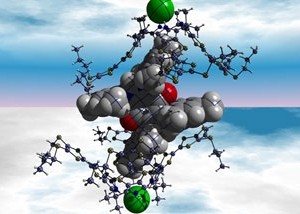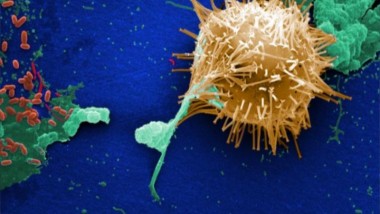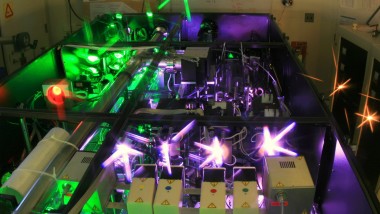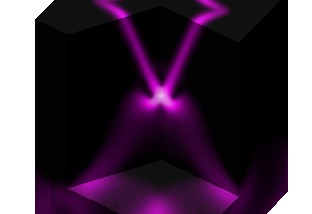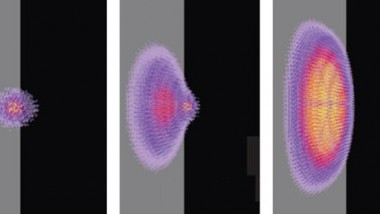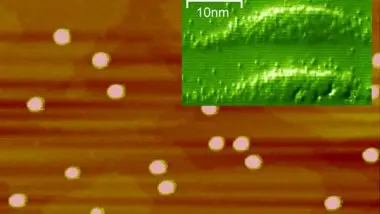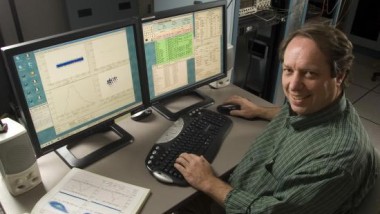Chemists from the University of Texas developed new organic batteries that offer lightweight energy storage. Unlike similar developments, their new battery does not rely on toxic heavy metals, making it a potential ecologic replacement for current batteries. Illustration of an ...
SEM of Untreated Water Specimen
This digitally-colorized scanning electron micrograph (SEM) of an untreated water specimen extracted from a wild stream mainly used to control flooding during inclement weather, revealed the presence of unidentified organisms, which included bacteria, protozoa, and algae. In this particular view, ...
Lasers Lengthen Quantum Bit Memory
Scientists from the University of Michigan have discovered a new feedback reaction that has the capability to stabilise the magnetic field of a quantum dot. Using lasers, the team lengthened the stable existence of a quantum bit to more than ...
New Compound May Revolutionize Chip Technology
Scientists from the SLAC National Accelerator Laboratory at Stanford University have proven the existence of a new type of material that could increase the speed, performance and efficiency of future computer chips. The new material permits the flow of electrons ...
Controlling Quantum States
An international team of researchers has demonstrated that it can manipulate the quantum state of a single electron in a silicon transistor by placing the electron in two places at once. Their breakthrough could point the way towards a practical ...
Proton-Electron Mass Constant for 6 Billion Years
Research carried out at the Max Planck Institute for Radio Astronomy has shown there has been practically no variation in the proton-electron mass ratio over the last six billion years. The research was based on studying the spectra of light ...
Electron Traps that Compute
The “Quantum Photonics Group” researchers at ETH Zurich, Switzerland have created superimposed quantum dots, which are able to ‘trap’ single electrons. Created using a semiconductor material, energy in these dots can be influenced by lasers. The researchers were successful in ...
Heavy Metals
A team of physicists recently found that an atomic nucleus can hold many more neutrons than what was previously considered possible. In experiments conducted earlier this year, researchers created and detected one new ultra-heavy isotope of magnesium – magnesium-40 – ...

